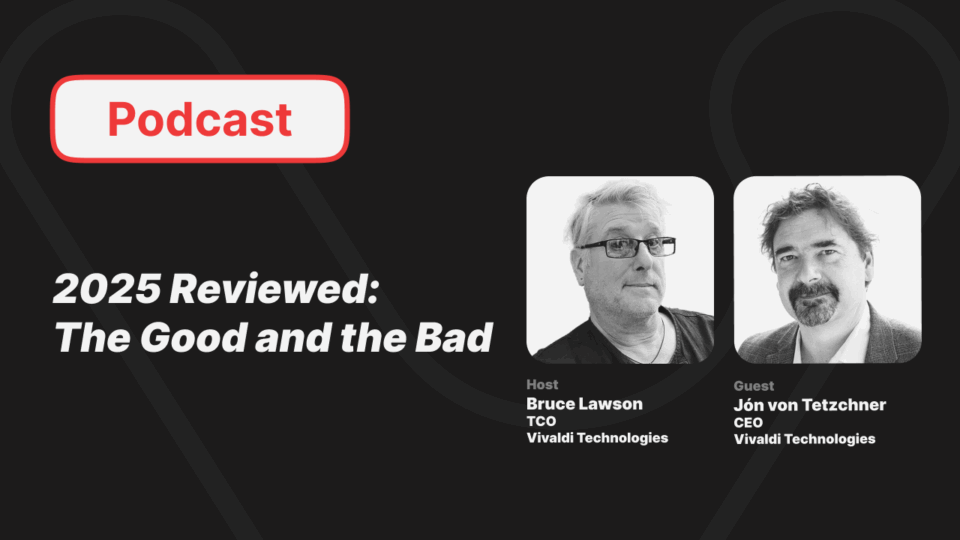
The European Commission says Apple’s iPadOS is a ‘gatekeeper’ due to the large number of businesses ‘locked in’ to the platform by the large app ecosystem.
Apple now has six months to ensure full compliance of iPadOS with the DMA obligations.
In a press release issued yesterday, The EU says that four criteria will eventually make Apple a gatekeeper in tablets.
- Apple’s business user numbers exceed the quantitative threshold by 11 times — but this is not a criterion in itself.
- End-user numbers are close to the threshold and are predicted to rise in the near future.
- End users are locked-in to iPadOS.
- Business users are locked-in to iPadOS because of its large and commercially attractive user base.
What does Vivaldi think about this ruling?
We welcome this new development. This is what our CEO, Jon von Tetzchner, has to say:
“This clarified designation shows that, like us, the EU believes that iPads and iPhones are part of the same ecosystem, and Apple controls both as the gatekeeper. They both run the same iOS operating system, even if Apple claims that iOS and iPad OS are different; they are fundamentally the same. The only real difference is the screen size. Our browser, Vivaldi, works on both of them without any differences.
Apple claims that the iPad is different from iOS, to avoid complying with the DMA on the iPad. This curbs down a fair system for competitors on the iPad, but now Apple will have to change.
In the future, we hope this will also show a browser choice screen on iPads. We are happy with this ruling.”
What is the DMA?
The European Union’s Digital Markets Act (DMA) has targeted the core business models of six of the world’s most influential technology companies, known as digital “gatekeepers.” Apple, Microsoft Corp., Meta Platforms Inc., Alphabet Inc.’s Google, Amazon.com Inc., and TikTok owner ByteDance Ltd. are all subject to new obligations aimed at curbing their market dominance and preventing potential abuse of power.
Effective as of March 7, the DMA prohibits designated firms from favoring their services over those of competitors. Additionally, these companies are now forbidden from merging personal data collected across their various platforms. They are also barred from leveraging data obtained from third-party merchants to gain a competitive edge. Furthermore, the DMA mandates that gatekeepers must allow users to download applications from rival platforms.
The EU’s move to regulate these tech giants is a significant step toward fostering fair competition and protecting consumers’ interests. By imposing these obligations, the DMA aims to level the playing field and prevent potential anti-competitive practices that could harm smaller businesses and limit consumer choice.


